Women in horse racing under-represented in most prominent areas, says study
- Published
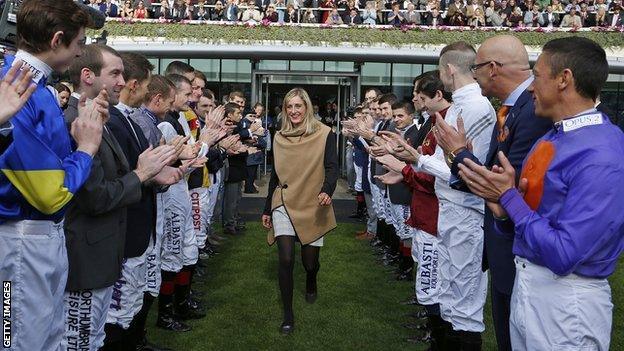
Last season, Josephine Gordon became the third woman to win the apprentice jockeys' title in Britain
Women are under-represented in the most prominent areas of British horse racing, says the first report into gender diversity in the sport.
Nearly 400 people at all levels of racing took part in the study, which has been seen by BBC Sport.
It found more women are entering racing from college courses, outnumbering men by a ratio of nearly 70:30.
But the report identifies what is being described as "career stagnation" once women try to make progress.
It recommends an independent diversity steering group is set up for racing.
Nearly 80% of the participants in the research were female. All those who answered questions were given anonymity in the report, which was commissioned by Women in Racing (which seeks to develop the profile of women in the sport), researched by Oxford Brookes University, and funded by the Racing Foundation charity.
What did people say?
Among the key findings are:
Some areas remain male-dominated, and women from across the industry report being patronised, not being taken seriously or being denied opportunities because of their gender.
Some report an "old boys' network" with practices which exclude women. Many held a "centre ground" view that, on the whole, the industry is a meritocracy which welcomes dedication and hard workers, but some had experienced "entrenched prejudice and discrimination".
Several participants reported inappropriate behaviour and bullying with a "banter" culture (particularly in yards) including ageist, sexist, racist and homophobic abuse. Some were unable to access necessary support to deal with this.
A number of women had been made to feel unwelcome when considering applying for more senior roles. Some had been specifically told that women would not be promoted.
Susannah Gill, a Women in Racing committee member who is also a director at Arena Racing Company which owns 15 British racecourses, said: "The report shows what you would hear anecdotally from people in racing. I think sometimes racing is seen as a conservative sport and people haven't openly shared their views.
"If you look who is on the senior boards of organisations in racing, the average is 16% women and we have several boards which don't have any women at the top level at all.
"So we're seeing a stagnation of career progression. That's something we certainly recognise in other industries as well, and I think we've probably known about it in horse racing. But this report is the first time we've seen it and talked about it.
"Most other sports, certainly those which receive public and lottery money, have already done this piece of work and are at the next stage."
'Women are doing great things'
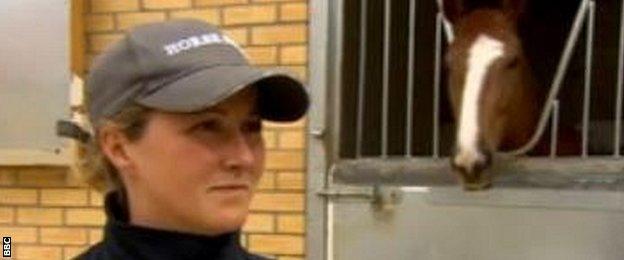
"You have to prove yourself a little bit more and thankfully we're doing that" - trainer Amy Murphy
Despite the high number of women employed at racing yards around the country, the report highlights the failure of many women to make progress in high-profile roles as trainers or jockeys. Women have struggled to break into the top 10 in the annual championships for those who ride winning horses or train them.
Amy Murphy is in her first year of training horses at Newmarket, the centre of Britain's racing industry. Still only 24, she became the youngest trainer in the town, and is one of the few women running a yard there - of 75 registered Newmarket trainers, only eight are female.
Murphy told BBC Sport: "You have to get the support and I think sometimes as a woman you probably have to prove yourself before people want to support you. Whereas if you're a man, they'd support you from day one.
"But we've had great support and loyalty from some big owners. Whether I would have had that support if we hadn't had the results we've had, I'm not sure."
Asked if she felt owners would be inclined to trust a man to train their horses rather than a woman, she said: "Not so much now, definitely that's probably what used to happen.
"But I think it's a much more open sport now. Women are doing great things. Five years down the line, there shouldn't be that question.''
Women in racing |
|---|
Racing is a rare sport where men and women compete together at the highest level - there are about 50 female and 350 male professional jockeys in Britain |
Hayley Turner has been Britain's leading female rider - with 763 career wins before retiring in 2015 |
In 2015, a trio of female jockeys beat three all-male sides to win racing's team riding event, the Shergar Cup at Ascot, for the first time |
Three female trainers have won the Grand National at Aintree in the last nine years |
Across Newmarket, trainer John Berry has been involved in racing for over 30 years. He believes some women jockeys hit a barrier in their 30s if they take a break from the sport to have a baby and have to re-establish themselves afterwards.
But he does not believe that gender should inhibit the way people in the sport are treated.
"I don't regard gender as an issue for any of the roles in racing, but then on reflection, not everyone thinks the same way," he said.
"So there is a lot of point in this report because everyone should feel that, and they don't, and if this report can help that to come about, then that would be good.
"In racing, the athlete is the horse and with all the jobs around that, whether jockey, trainer, people who work in the stables, who run the racecourse - no one gender is better than the other, and I mean that as jockeys as well.
"There are very good female jockeys, and moderate female jockeys. There are very good male jockeys, there are very moderate male jockeys. Neither gender guarantees you'll be good at something, neither gender guarantees you won't be good at it."
Kelly and Walsh show the way?
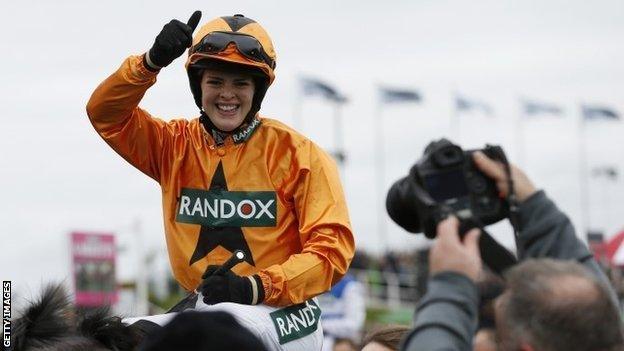
Lizzie Kelly has enjoyed two Grade One wins on Tea For Two
Already, 2017 has featured high-profile moments for women jockeys in racing.
Lizzie Kelly rode in the Cheltenham Gold Cup and then won the Betway Bowl at Aintree's Grand National festival. Katie Walsh rode again in the National, a race in which she finished third back in 2012.
The British Horseracing Authority's (BHA) figures show that women account for 12% of all licensed jockeys, but just 6% of all rides and only 1% of rides in the very top races.
Gill believes individual breakthroughs could mask more serious issues for the sport.
"In a way, those two examples [Katie Walsh and Lizzie Kelly] pinpoint the problems," she said.
"Both those examples are people who've had great family support, who've worked really hard but who have come from within racing. Whatever area of racing you come into, it can be hard to get on if you haven't already got the connections.
"So, while we want to celebrate success, we have to acknowledge it's not easy to get on in racing when you start from outside."
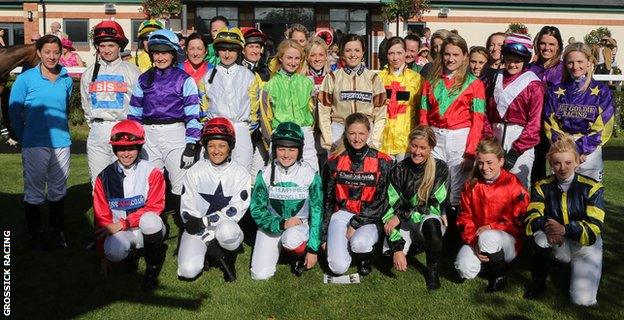
Carlisle Racecourse has hosted days featuring all-female cards since 2010
In an effort to promote opportunities for women jockeys, a series of nine races is being run through the season which will be reserved for female riders.
The Silk Series, organised by Arena Racing, began at Lingfield last week with the final race at Doncaster in September, featuring total prize money of £100,000.
Survey a stark reminder - BHA
The diversity report acknowledges the work of the BHA, racing's governing body, in increasing female representation on its own board. Seven of its 21 directors are now women.
The BHA says it "welcomes publication of the first ever research study of women's representation and diversity in racing. While this confirms that progress is being made on gender diversity, racing faces similar challenges to other sports in ensuring that people from all backgrounds are represented at all levels of our sport."
Chief executive Nick Rust said: "This survey serves as a stark reminder that while some progress has been made, there is much more that British racing needs to do to ensure that people receive the necessary encouragement, support and opportunities regardless of their age, gender, ethnicity, disability or social background.
"Today, we're restating our commitment to improve diversity in our sport.
"As the survey report highlights, to be successful, this requires a cross-industry effort, so we will now consult with racecourses and horsemen on additional actions we need to take, including the recommendations contained in this report."
Women in Racing believes voluntary targets for diversity in roles across the sport could potentially be introduced, but wants "champions" at the top of the sport to be driving through change.
The BHA has promised an update on progress by July.
- Published17 May 2017
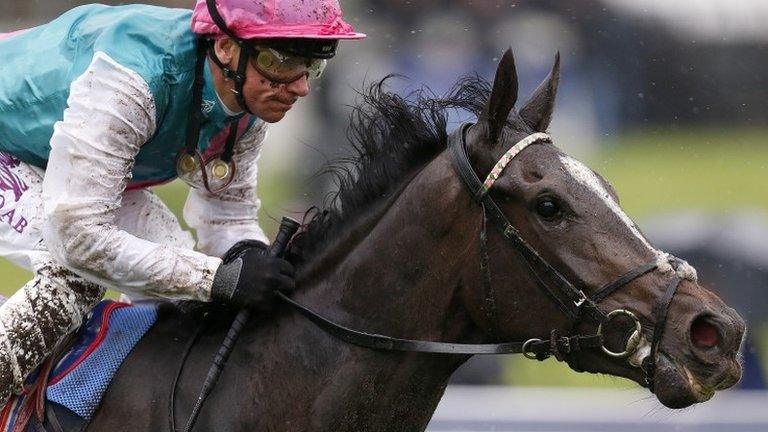
- Published21 October 2016
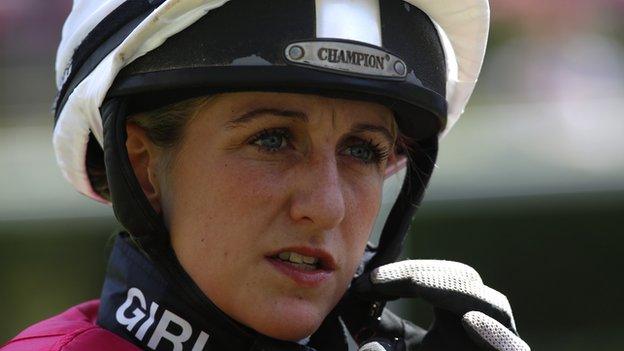
- Published3 June 2015
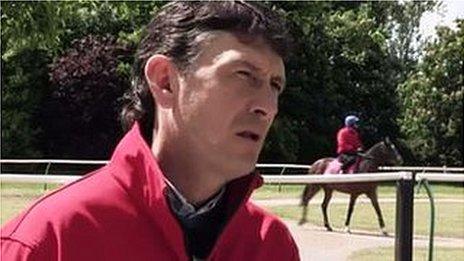
- Published21 December 2018
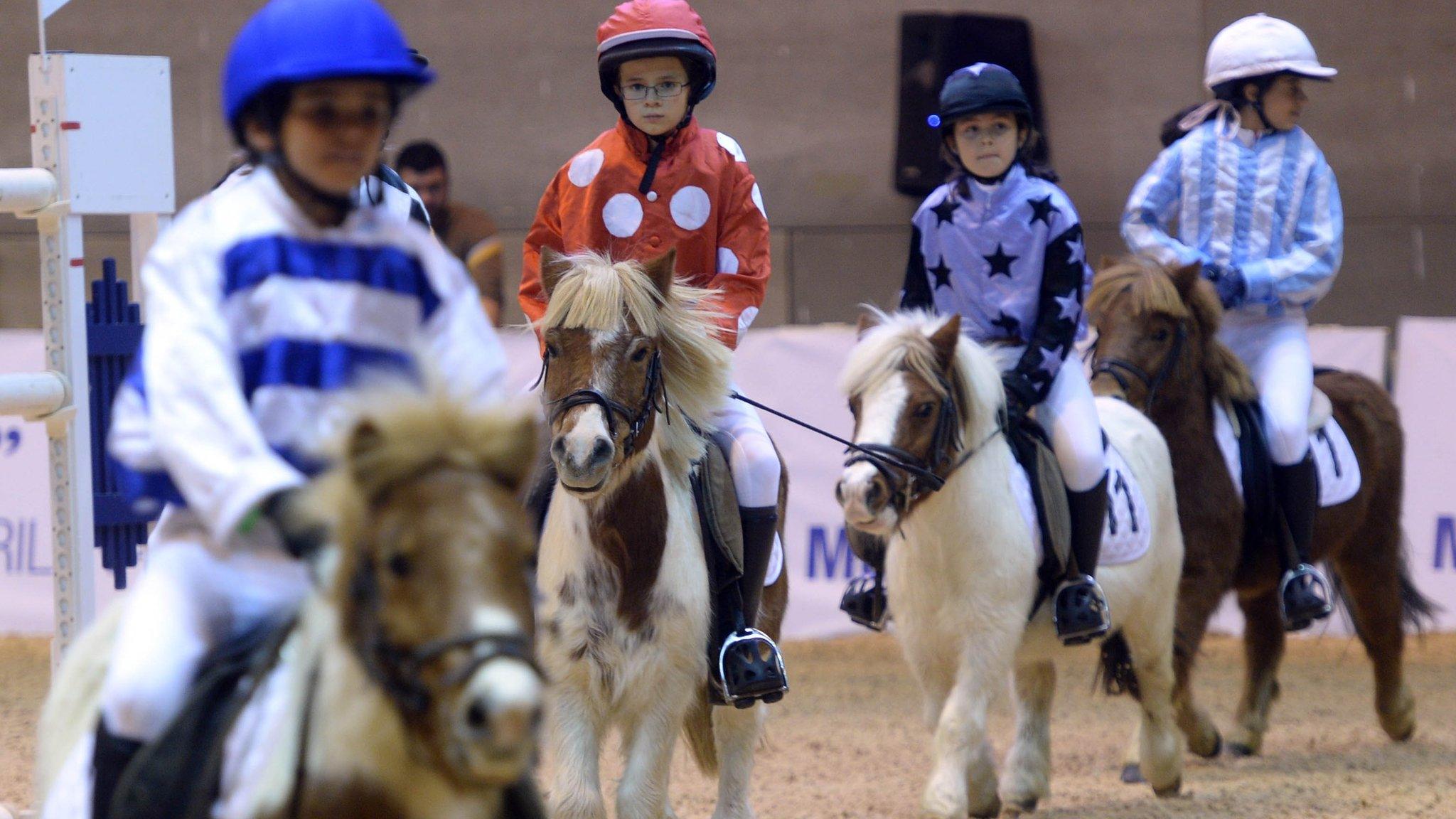
- Published13 May 2016
